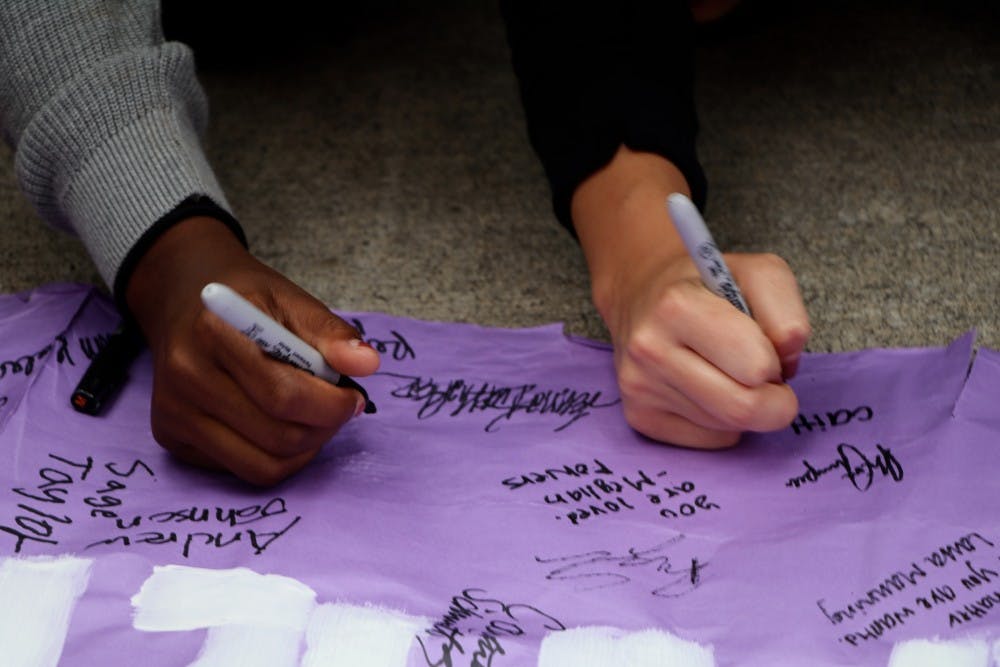Update: Due to scheduling conflicts, this panel event has been rescheduled for Monday, Oct. 9, at 7 p.m. in St. Mary's, according to event organizer Sitara Nath, service and justice coordinator for Kenna Hall.
Advocates for immigration reform at the University of Portland are pushing the dialogue around DACA forward. A panel called “DACA: Continuing the Conversation” will take place on Monday, Oct. 9, at 7 p.m. in St. Mary’s.
Deferred Action for Childhood Arrivals, or DACA, an Obama-era program that gave undocumented immigrants the opportunity to live, work and be educated legally in the U.S. without fear of deportation, has been in the headlines over the past year since President Donald Trump promised to reverse it in an August 2016 campaign speech. U.S. Attorney General Jeff Sessions fulfilled this promise in a Sept. 5 announcement terminating the program, pending a six-month period for Congress to intervene with a solution.
The panel event will aim to educate the university community on DACA and immigration issues more generally, and show Pilots how they can make a difference for DREAMers and all those who are affected by the rescindment of DACA.
The event will feature panelists, including Yuridia Hernandez Osorio, coordinator for diversity and inclusion programs, Alejandro Santana, philosophy professor, and Efrain Venegas Ramirez, an undocumented senior physics and philosophy double major.
Hernandez Osorio, who graduated from UP in 2015 with a degree in social work, said she believes it is important for everyone to be educated on the complexities of DACA and immigration policy.
“I think people are still very confused about (DACA) and that leads to a lot of miscommunication,” Hernandez Osorio said. “It’s not a one-size-fits-all kind of thing.”
DACA, which had to be renewed every two years, was a temporary solution for more than 800,000 young, undocumented immigrants who were brought to the U.S. without documentation as children, but have mostly grown up here.
Although many DACA beneficiaries identify as DREAMers, DACA is not the same thing as the DREAM (Development, Relief, and Education for Alien Minors) Act. The Dream Act would have given undocumented youth a pathway towards permanent residency, and was introduced in 2001 but never passed, whereas DACA offered deferral from deportation for only two years at a time.
Hernandez Osorio, who spoke at a recent campus DACA vigil about the anxiety and fear that DACA recipients are living with, said that it is important for all students, regardless of status, to carry Know Your Rights cards, and always be prepared for interactions with law enforcement.
She has these cards in her office, along with other resources and information for students who may be grappling with the reversal of DACA.
The panel event is being sponsored by the Moreau Center, Diversity and Inclusion Programs and a UP student organization called Movimiento Estudiantil Chicano de Aztlán, or MEChA.








